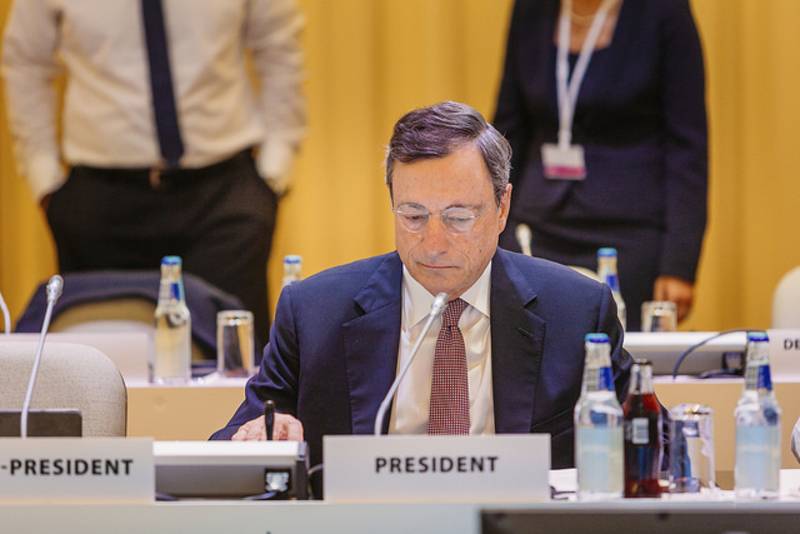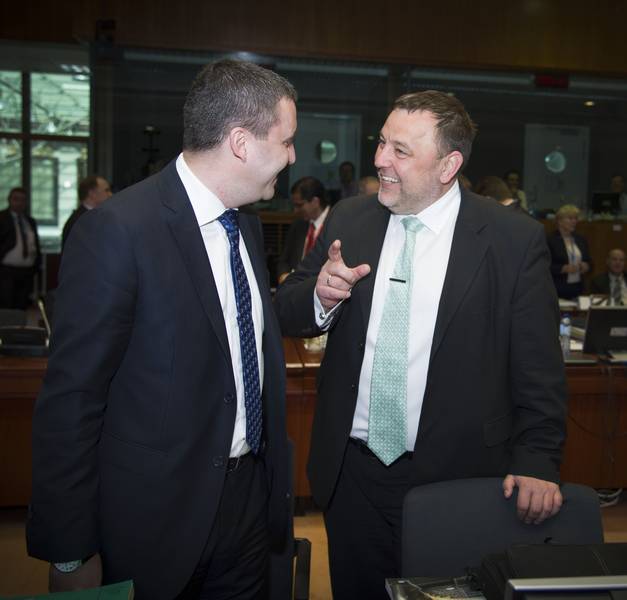The problem with financial crises lies in the analyses of their history
Adelina Marini, May 20, 2009
 An interesting discussion about the roots of the crises was held in Sofia today in the framework of an academic meeting about "The crises and Bulgaria - a view from the past". The Bulgarian minister of finance Plamen Oresharski took part in the discussion together with the financial expert Emil Harsev and representatives of the academics. During the discussion an interesting division formed between the theoretic experts (the representatives of the academics) and the practitioners (the people that have actually been forced to make decisions at a particular financial-economic moment).
An interesting discussion about the roots of the crises was held in Sofia today in the framework of an academic meeting about "The crises and Bulgaria - a view from the past". The Bulgarian minister of finance Plamen Oresharski took part in the discussion together with the financial expert Emil Harsev and representatives of the academics. During the discussion an interesting division formed between the theoretic experts (the representatives of the academics) and the practitioners (the people that have actually been forced to make decisions at a particular financial-economic moment).
Exactly in this regard was the opinion of professor Hristina Vucheva who has for many years worked with the Ministry of Finance and was even a financial minister and deputy prime minister in the caretaker government of Reneta Indzhova. She said that when someone makes a comparison between crises it would be great if there were good historical analyses. Unfortunately, she said, that is one of the sins of the academics because up till now there's no reasonable analysis of what happened in Bulgaria during the crisis of 1996-1997 and there are not many analyses of what is happening now. And it is true that at the moment either because we have a pre-election situation or because the academics are stuck somewhere in their lecture halls but the analyses of the current financial-economic situation, at least here in Bulgaria, are being made by politicians and their financial experts. That is why today's discussion was very useful because it gave an opportunity a lot of opinions of active economists to be heard with real analyses on what's happening.
And so, the current financial minister Plamen Oresharski said that Bulgaria experienced much harder financial crisis in 1996 and 1997, the reason for which lied mainly in the lack of any regulation of financial institutions and instruments. But for the analyst from the Open Society Institute Gheorghi Angelov, such explanations are too simplistic. He offered the following deliberations: "Why then the communications balloon didn't cause such a crisis or why other balloons didn't cause any crisis? There's something different in this sector and that is to great extent the interference of the state - the first and most important thing is, to some extent, the guarantees over the deposits because if someone has invested in a communications company, expecting it to earn a lot of money but it fails, then it is the investor who loses. But if banks invest in risk investments and these losses are uncovered they become budgetary losses because the budget will have to guarantee the deposits in that same bank.
In other words, Angelov said, the problem is different and appears quite often - every 10-15 years in the US when the state has to save banks in order to pay the guaranteed deposits. I.e. we have another structural problem, which is actually bound to other problems, but the balloon cannot evoke such a cataclysm by itself if it hasn't been bound to the budget and therefore to overload economy".
The financial minister fully agreed with Gheorghi Angelov by adding: "State guarantees are an instrument which washes away the clear vision of risk, it doesn't allow good outlining of the risk profile of one or another instrument and in this aspect deposits probably carry greater risk than the real one after the state guarantees them because this curves the relation risk-return and that is very important when taking investment decisions. But, I'm more inclined to think that this is a secondary issue and for now the three world practices give some protection, especially on the deposits, based on the assumption that the small depositor is not and shouldn't be an investment specialist - this is not his business". Beside this Plamen Oresharski proved sceptic that in spite of the expectations of the public, there won't be any new financial architecture.
But outside pure theory there are political decisions, especially in times of elections - for European and National parliaments. More developed countries have solved this problem - they do not take irresponsible decisions like "after me: deluge", because in the end of the day economy is like the Earth - we're all on it.
 Mario Draghi | © ECB
Mario Draghi | © ECB Vladislav Goranov, Sven Sester | © Council of the EU
Vladislav Goranov, Sven Sester | © Council of the EU Tsakalotos, Djisselbloem, Gramegna | © Council of the EU
Tsakalotos, Djisselbloem, Gramegna | © Council of the EU